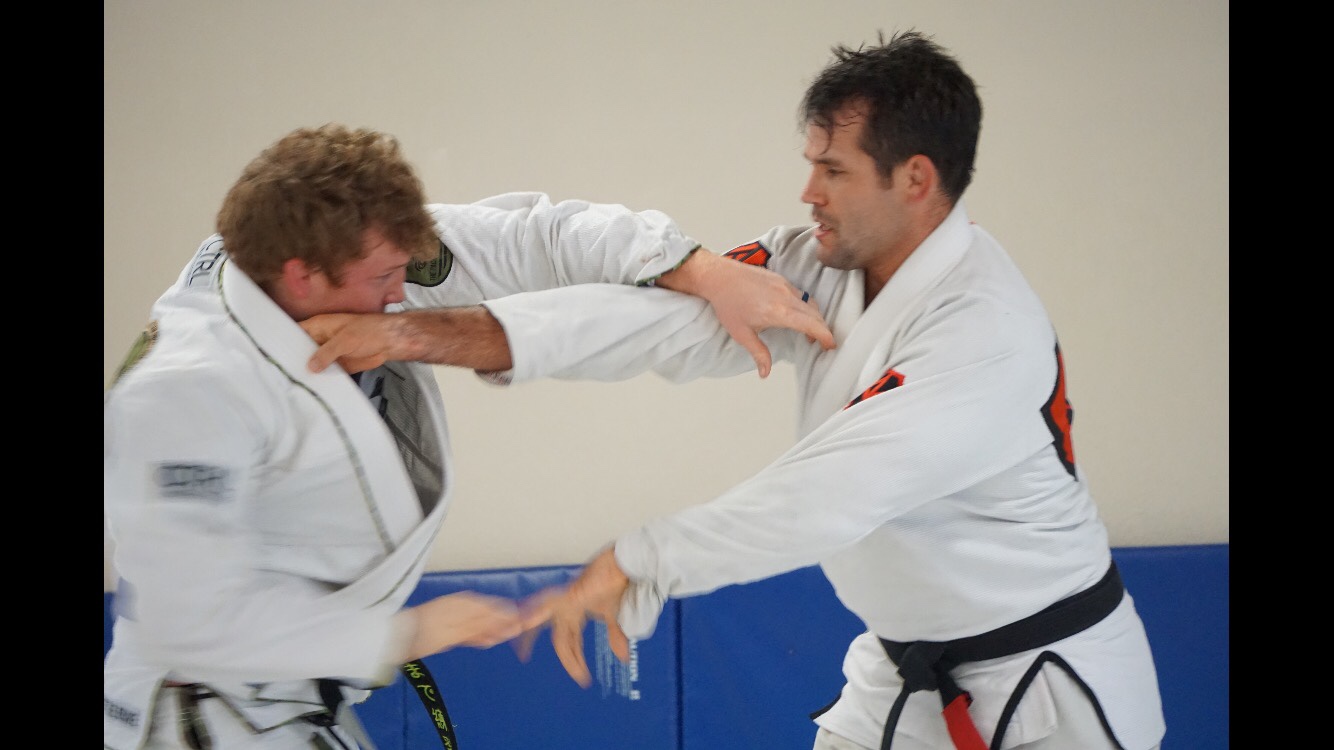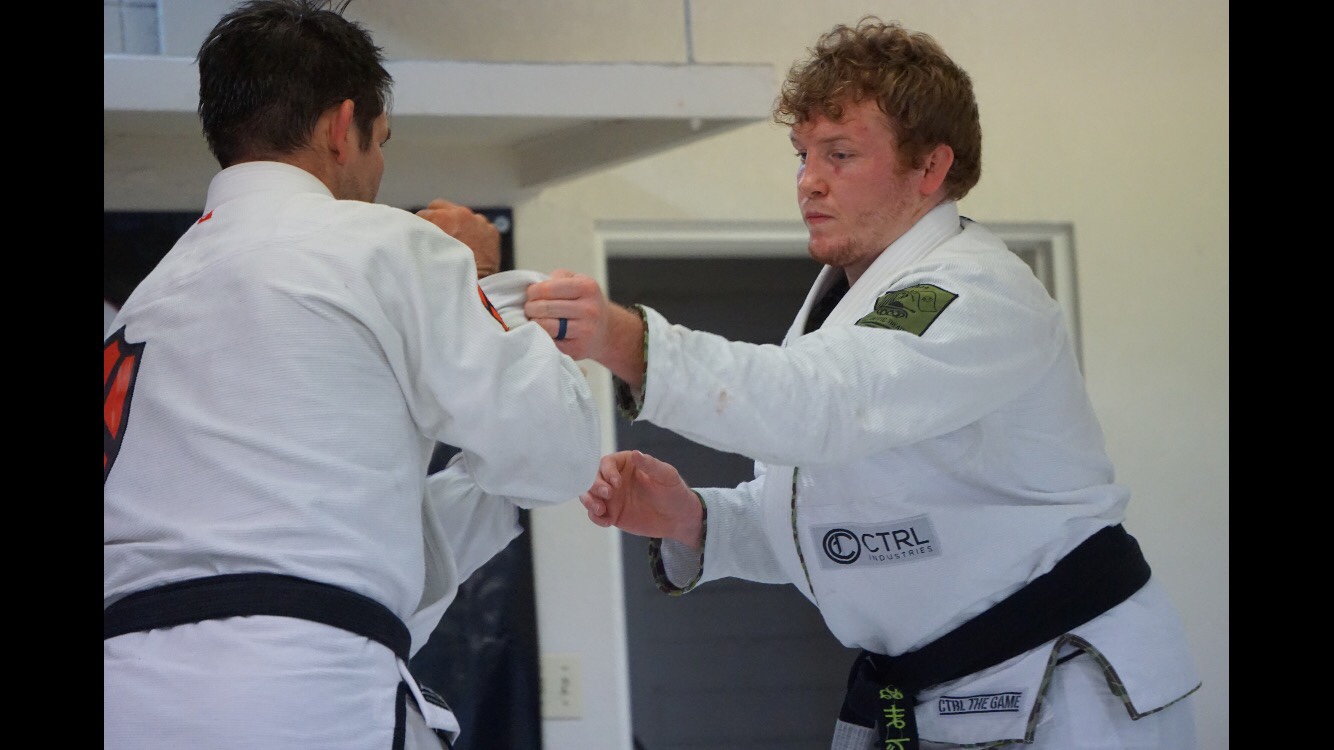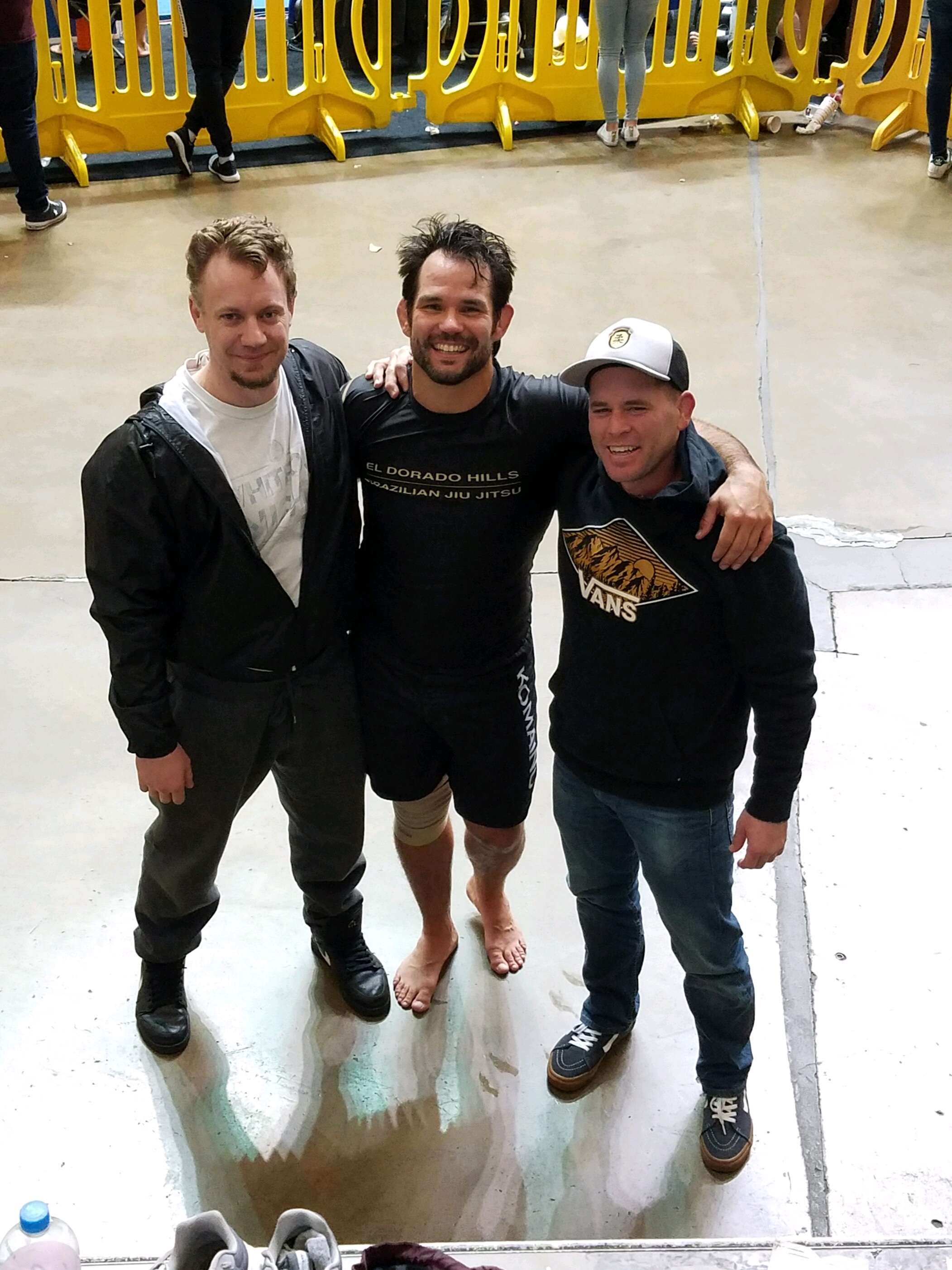I was practicing with one of our students at EDH Jiu Jitsu today and I had to stop and slow things down. Not because we were going wild crazy, but more because I felt he was trying too hard without the use of proper technique. In the moment, an analogy popped in mind that I felt appropriate to share with everyone. The locksmith with the sledgehammer.

There are a few ways to open a locked door. A locksmith uses a set of tools and techniques to open the door. Sometimes the locksmith might damage the lock, sometimes they open the door, and sometimes need to pull out a sledgehammer to knock open the door. The sledgehammer works but you might ruin the door. And really, the goal as a locksmith isn’t to use the sledgehammer at all. In jiujitsu, the door may be your door or may be your partners door. In either case, using a sledgehammer will create a need for someone’s door to be repaired or replaced.
In case you were wondering, the sledgehammer in jiujitsu is the reckless training some of us subject ourselves and our partners to. We often resort to the sledgehammer when we lack the necessary locksmith tools or the know how in the use of specific tools. It’s not bad or inappropriate for trying to win a dominant position. But our mindset during a puzzling lock is very important in training.

A locksmith (or at least what I would imagine a locksmith to do) knows what tool to use for each lock and how to use that tool effectively. This is similar to knowing how to use the appropriate technique at the appropriate time/position. If you don’t use the right technique to escape an armbar, and you keep going, you will break your arm. (Thankfully most of us have training partners that will let up on submissions before they think they will hurt you.) If you choose not to tap in practice, and your partner didn’t let go….. You are responsible for you, you should tap.
Therefore, situations require us to approach the “lock” with a problem solving mindset. Whenever possible, slow things down. Think. Figure out what the problem is. In many cases that might mean you “tap” and revisit the problem at the end of practice. As a coach, I’m looking to see what problems you can solve in the moment, but more importantly what problems you know are beyond your ability and as a result, tap, stop, or slow down the moment. As a coach I’m looking to see a development in your mindset to problem solving.
A locksmith doesn’t just pull out a sledgehammer when their tools don’t work (I hope). They problem solve. Go through their bag of tools, refer to a manual, they might even call a friend to ask for help. Much like a lock without a key requires problem solving, jiujitsu is problem solving of positions and submissions.
So do that! Avoid the fight. Don’t do battle. Quit trying to win. Think! Problem solve. Find solutions that don’t result in broken down doors ripped off their hinges. Be a master locksmith. Don’t let your friends take out a sledgehammer and knock your door down. Stop them before it’s tool late. Teach each other how to become a master locksmith.
In the end, I don’t want to be misunderstood. Hard training is important, and injuries can happen. One of our coaches always reminds us, “your intensity should stay within your technical ability.” What a great phrase that sums up the locksmith analogy. When we exceed our technical ability, we resort to using sledgehammers. (A roomful of people swinging sledgehammers while wearing a gi, lol, that’s crazy.) Instead, keep our intensity within our technical ability. That’s how we practice problem solving, and truly develop in our art.